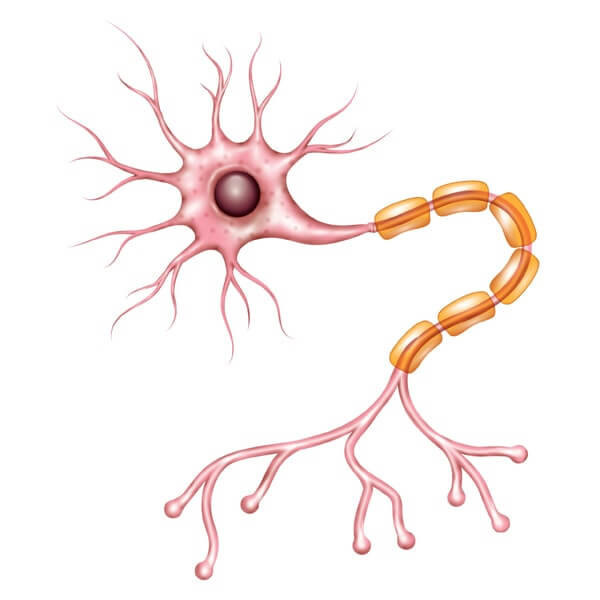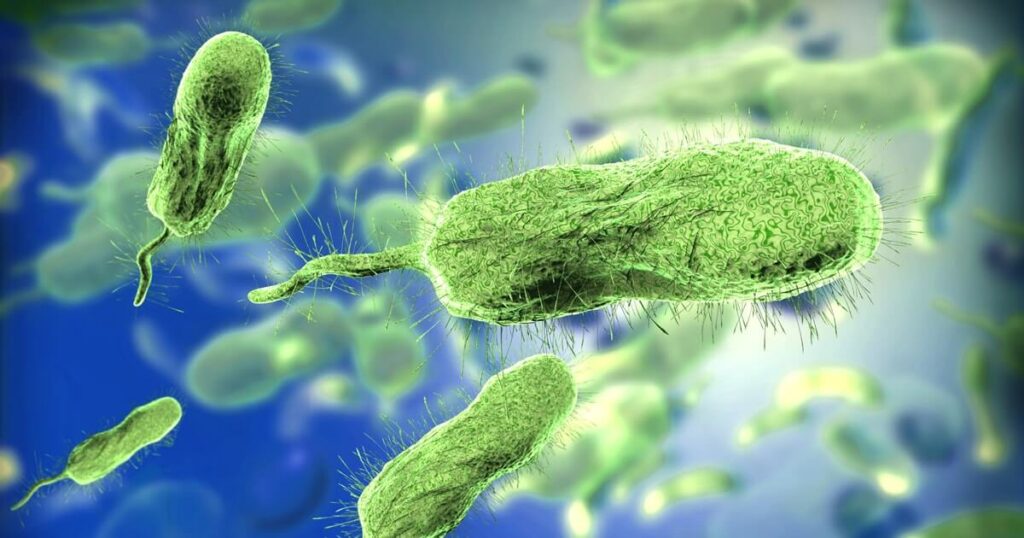Table of Contents
Vegan diet and B12 – is it really that complicated? Probably the best known critical nutrient in a vegan diet is vitamin B12, also known as cobalamin. A micronutrient produced exclusively by microorganisms, but not by plants or animals, and that is vital for the human organism. Since some bacteria in the soil can synthesize the vitamin, it is sometimes claimed that you can meet your vitamin B12 needs as a vegan with unwashed vegetables. However, this statement cannot be scientifically proven. Because the bacteria in the human large intestine are also capable of synthesizing cobalamin, but the absorption of the vitamin into the bloodstream already takes place in higher intestinal segments. Therefore, self-synthesis is not enough to meet the needs. You will learn in this article how you can meet your vitamin B12 needs with a vegan diet.
Vitamin B12 performs essential functions in blood formation and in the central nervous system, which is why a deficiency can lead to serious, irreversible damage. To date, no plant food has been identified that can meet the human need for vitamin B12. According to the current state of science, this is only possible through the intake of supplements on a vegan diet.
Functions

On the one hand, vitamin B12 is involved in the process of blood formation, on the other hand, it is also involved in the synthesis process of our genetic material as well as in the cell division process. On a biochemical level, cobalamin is closely linked to folate metabolism. The essential reaction step is the regeneration of the metabolic intermediate homocysteine into the amino acid methionine. Elevated blood levels of homocysteine are associated with an increased risk of cardiovascular disease. This is why the conversion of homocysteine to methionine is so important. For this process, the supply of vitamin B6, B12 and folic acid is crucial, as these micronutrients serve as cofactors of the enzymes involved (Riesen, 2014). Due to the close connection between vitamin B12 and folic acid, a deficiency of these nutrients manifests itself in similar symptoms.
Vitamin B12 is also involved in the production of serotonin. This substance is a messenger substance of the nervous system with a variety of functions. For example, serotonin regulates blood pressure, lifts our mood, influences processes of the gastrointestinal tract and plays an important role in the sleep-wake rhythm.
Bioavailability
 Cobalamin is the name given to all forms of vitamin B12 that are molecules with a uniform basic chemical structure. Differences can be seen in the respective modified marginal groups. What they all have in common is the centrally present cobalt ion in the molecule (see Fig. 1), from which its name is derived. Adenosyl- and methyl-cobalamin represent the natural and active forms in the human organism. Hydroxy- and aquo-cobalamin can be converted to the active form, while cyano-cobalamin is a synthetic form and is primarily used in supplements.
Cobalamin is the name given to all forms of vitamin B12 that are molecules with a uniform basic chemical structure. Differences can be seen in the respective modified marginal groups. What they all have in common is the centrally present cobalt ion in the molecule (see Fig. 1), from which its name is derived. Adenosyl- and methyl-cobalamin represent the natural and active forms in the human organism. Hydroxy- and aquo-cobalamin can be converted to the active form, while cyano-cobalamin is a synthetic form and is primarily used in supplements.
All other modifications of the basic structure represent B12 analogs without proven bioavailability for our body. These forms are found in plant sources, such as the alga Spirulina (Watanabe, 2007). There is evidence of algae with high levels of bioavailable vitamin B12, such as chlorella and nori. However, current studies do not provide sufficient evidence that these can provide an adequate supply for human needs (Croft et al., 2005; Kittaka-Katsura et al., 2002; Merchant et al., 2015).
Vitamin B12 enters the bloodstream via the digestive tract with the help of a protein called intrinsic factor. This is formed by the gastric mucosa, and it enters into a complex with the vitamin, which is ultimately absorbed via a specific receptor in the mucosa of the small intestine. Thus, your state of supply depends not only on the intake of bioactive vitamin B12, but also on the synthesis capacity of the intrinsic factor. Older people in particular tend to have a lack of self-production of this factor. However, the vitamin can also enter our bloodstream partially without shuttle function (passively). This process takes place in particular when high concentrations are supplied, as can be the case in vitamin B12 supplements.
Cobalamin can be stored in the human body. The majority is located in the liver, smaller amounts in the muscles. The filled stores account for approx. 2-5 mg and can supply you for a period of 3-5 years (Elmadfa and Leitzmann, 2004).
Requirement and Status
The European Food Safety Authority (EFSA) sets the adequate intake (AI) for adolescents and adults at 4 µg vitamin B12 per day. This value includes a sufficient safety margin due to the partly high variability of resorption. As with iron and other nutrients, pregnant women (4.5 µg/day) and lactating women (5.0 µg/day) need more vitamin B12 (EFSA, 2015).
Vitamin B12 status can be determined by blood analyses, whereby you should use different parameters for a meaningful evaluation. The concentration of cobalamin only informs about the short-term status, while the analysis of the transport protein holo-transcobalamin (holo-TC) is a more suitable longer-term reference. Another long-term parameter is the concentration of methylmalonate (MMA) in urine and blood. Since this metabolic intermediate is converted with the help of vitamin B12, it accumulates in the absence of cobalamin. Serum levels above 32 µg/l methylmalonate indicate a probable deficiency of vitamin B12 (LADR, 2016).
The same applies to the amino acid homocysteine, which you can use as an additional diagnostic criterion: A deficiency of vitamin B12 causes elevated concentrations in the blood.
Deficiency

An insufficient intake of vitamin B12 can result in a number of devastating, sometimes irreversible, damages. The lack of remethylation of homocysteine to methionine favors a secondary deficiency of folate. Folic acid or folate is involved in the DNA synthesis process. A deficiency leads to increased synthesis of 5-methyl-THF, which cannot be used for nucleoside synthesis, and to impaired cell division in the body. In particular, the production of red blood cells, cells of the oral and pharyngeal mucosa and the nervous system are severely affected. Anemia with pallor, fatigue, dizziness and delayed wound healing are classic symptoms. On a neurological level, vitamin B12 deficiency is referred to as funicular myelosis. The clinical picture is characterized by disturbances in movement coordination, sensitivity, reflexes and muscle spasms. Cognitive performance can decline rapidly, and confusion, memory disorders or even hallucinations may occur.
The amino acid homocysteine accumulates in the blood system, potentially promoting vascular disease. Homocysteine levels of more than 12 μmol/l in blood plasma are associated with an increased risk of cardiovascular disease (Kasper, 2009).
A vitamin B12 deficiency can be caused not only by diet. Absorption disorders, such as insufficient production of intrinsic factor, diseases of the digestive tract or disorders in the utilization of the vitamin can also cause a deficit. Likewise, the use of proton pump inhibitors or the antidiabetic drug metformin over a longer period of time favors a vitamin B12 deficiency (Schmidt, 2011).
Occurrence in Food
Only microorganisms are capable of synthesizing vitamin B12. Plant foods contain little or no amounts of this essential nutrient. Animals can supply themselves with vitamin B12 partly through self-synthesis in the intestine or stomach (ruminants). In addition, their feed also contains the vitamin, which is why meat, offal and other products derived from animals contain cobalamin.
In plants, only traces of vitamin B12 are present in tuber and root vegetables. An essential prerequisite is the association of the plant with nodule bacteria (legumes), since the latter are capable of vitamin B12 synthesis and symbiotically supply the plant with the vitamin. Other sources with minor B12 content are some fermented foods. The food industry also synthetically fortifies various foods with vitamin B12. These products include, for example, dairy alternatives, some juices, energy drinks or meat alternatives.
However, the above-mentioned sources are usually not sufficient to cover the need for vegan vitamin B12, which is why the use of vitamin B12 supplements is necessary in the long term and regular monitoring of the nutritional status is recommended (Leitzmann and Keller, 2013).
Vegan Vitamin B12-Supplements

Synthetic vitamin B12 production has been possible for decades. On the one hand, this has made the fortification of food possible and on the other hand, this enabled the production of supplements. The dosage forms offered differ in their absorption capacity. Absorption of vegan vitamin B12 from tablets depends on the production of the intrinsic factor in the stomach. The vitamin and can only then be absorbed via the mucous membrane of the small intestine. Liquid dosage forms (drops), on the other hand, are already passively absorbed into the bloodstream via the oral mucosa. The same applies to lozenges or fortified toothpaste, although the latter is primarily suitable for maintaining vitamin B12 status and not for compensating for a deficiency.
If there is a severe deficiency, a vitamin B12 injection cure is recommended. In this case, the vitamin is injected subcutaneously, and the gastrointestinal tract is completely bypassed. Thus, the cobalamin can enter the bloodstream unhindered and completely.
Vitamin B12 Status on a Vegan Diet
The EPIC-Oxford study concluded in its evaluations that half of all vegans examined had blood levels of vitamin B12 below the reference value (Gilsing et al., 2010). Comparable results were obtained in a study of a German and Dutch population group in which the transport protein holo-transcobalamin was used as a measurement parameter (Herrmann et al., 2003). Today, however, almost everyone understands the importance of supplementation, so the incidence of deficiencies in vegan diets is likely to decrease. In a subgroup of the Adventist Health Study 2, 15 % of the 76 vegans studied consumed less than 2 µg of vitamin B12 per day via fortified foods and supplements (Haddad et al., 2020). In addition, there is a strong association between the duration of the vegan diet and the decrease in blood serum vitamin B12 concentrations when not supplemented (Hahn and Waldmann, 2004). These results show the relevance of vegan vitamin B12 intake via dietary supplements.
Figure 1 shows the different mechanisms of vitamin B12 absorption. They affect how much vitamin B12 your body can use, your nutritional status, and the appropriate dosage of supplements.

Summary: Vegan B12
Vitamin B12 performs essential functions in blood formation, the regeneration of homocysteine and in our nervous system. Deficiencies can cause irreparable damage and lead to anemia and cognitive disorders. According to current research, when eating a vegan diet, care should be taken to use vegan vitamin B12 sources in the form of supplements. This is because a supply from plant foods is considered insufficient. In addition, you should have your blood parameters (holo-transcobalamin, methylmalonate, homocysteine) checked regularly.









Leave a Reply